STUDENT RESOURCE PAGE
OL 333: Climate Smart Agriculture.
This OL 333 Student Resource Page has three sections that can easily be reached by clicking on the red links just below.
Read the Class Homepage First.
- Download Documents. This is where you can download Word, Excel and PDF documents that can save as course resources for future projects and use as templates for the assignments.
- The Course Website. Webpage versions of the discussions and assignments for each week.
- Read this first: The Class Home Page. This gives you an overview of the course and also sets up the course logistics.
Links on this OL 333 Student Resource Page:
| Download Documents | Discussions & Assignments | Class Home Page |
Download Course Documents
OL 333: Climate Smart Agriculture
General Documents
Course Participant List
Week One
OL 333 Assignment One Homework Word Document 35K
Magee Example Project OL 333 Assignment 1 Word Document 35K
Lesson Planning and Facilitating Capacity Building Workshops
Field Guide: Participatory Mapping of Soil and Water Resources
Workshop Lesson Plan Template: Participatory Mapping of Soil and Water Resources
How to Card: Participatory Mapping of Soil and Water Resources
Field Guide: Participatory Capacity and Vulnerability Assessment
Workshop Lesson Plan Template: Participatory Capacity and Vulnerability Assessment
How to Card: Participatory Capacity and Vulnerability Assessment
OL 333 examples of general information discovered in the initial farmer assessment
CARE. Climate Vulnerability and Capacity Analysis Handbook. CARE.
IFAD. Good Practices in Participatory Mapping, IFAD.
IIED. Participatory Learning and Action 54: Mapping for change: practice, technologies and communication, IIED.
Week Two
OL 333 Assignment Two Homework Word Document 35K
Magee Example Project OL 333 Assignment 2 Word Document 35K
Lesson Plan: Formation of Agricultural Committee/Farmer’s Association
Week Three
OL 333 Assignment Three Homework Word Document 35K
Magee Example Project OL 333 Assignment 3 Word Document 35K
OL 333 Assignment Three Discussion Word Document 35K
Week Four
OL 333 Assignment Four Homework Word Document 35K
Magee Example Project OL 333 Assignment 4 Word Document 35K
OL 333 Assignment 4 Discussion Word Document 35K
Soil Restoration and Conservation for Smallholder Farmers Field Guide, How To Card, Lesson Plan
Agricultural Soil and Water Management for Sloping Land Field Guide, How To Card, Lesson Plan
Week Five
OL 333 Assignment Five Homework Word Document 35K
Magee Example Project OL 333 Assignment 5 Word Document 35K
OL 333 Assignment Five Discussion Word Document 35K
Week Six
OL 333 Assignment Six Homework Word Document 35K
Magee Example Project OL 333 Assignment 6 Word Document 36K
OL 333 Assignment Six Discussion Word Document 35K
Week Seven
OL 333 Assignment Seven Homework Word Document 35K
Magee Example Project OL 333 Assignment 7 Word Document 36K
Field Guide: Knowledge Transfer — Developing Field Guides, Lesson Plans, and Workshops
Soil Restoration and Conservation for Smallholder Farmers Field Guide, How To Card, Lesson Plan
Agricultural Soil and Water Management for Sloping Land Field Guide, How To Card, Lesson Plan
Week Eight
OL 333 Assignment Eight Homework Word Document 35K
Magee Example Project OL 333 Assignment 8 Word Document 36K
Webpages with Weekly Course Discussions and Assignments
Welcome to CSDi Online Learning’s OL 333: Climate Smart Agriculture.
Class Home Page
The Course
Welcome to the Center for Sustainable Development’s online learning course OL 333: Climate Smart Agriculture. In this course you will build a project around community need.
Logistics
This is the Student Resource Page where you will land each time you login. If I have an important announcement I will post it here so you will see it when you login.
The class week begins on Tuesdays; assignments need to be sent to me by the Monday 7 days later. This allows students without Internet at home to access Internet at work on Mondays in order to send their assignment in.
This first week’s Assignment will take longer that any of the assignments of the next 8 weeks. This is why I am giving you three weeks to do it. This will also give you extra time to get used to the course website, explore online resources and read introductory documents about the course.
You have signed up for a specific course within specific dates. If you are not able to complete the course within these dates, the Center allows you to take the course again for 50% of the normal course fee if you enroll in the very next scheduled course and use the very same project. Unfortunately, we can’t make exceptions.
On Tuesday/Wednesday, the first/second day of the course, I will post a student list in the Download Class Documents page with your names, countries, organizations, and what you do so that you can begin the process of selecting partners. Partnerships are not required for the course, however, if one or two people look interesting to you as a potential partner, please send me your choices and I will organize the partnership. Do not try and contact anyone directly; it adds tremendous confusion to the process. Move quickly: Start right away. Our goal is to complete the partnering process this week. Partners go quickly and experience shows that those that wait until Friday miss out.
You will land on this page—the Student Resource Page—each time you log in. It contains:
1. A links for downloading the weeks’ documents: be sure to save them for future reference.
2. Links for the background Discussion on the week’s homework assignment; in this case – OL 333 Discussion 1; read this first each week
3. Links to the week’s Assignment; in this case – OL 333 Assignment One Homework
4. Links to the Magee Example Project Assignment for each week.
5. This, the ‘Class Home page with the class rules and logistics
6. A link to the Email & Homework Etiquette page in the Download Class Documents gives the rules of the game for corresponding with us and for posting assignments. Please print it out and read it first.
Each week I will ask you to download my example project to use as an assignment template. Your assignments need to be sent to me as an attachment to: OL.341@csd-i.org .
Important: The Email & Homework Etiquette page in the Download Class Documents gives the rules of the game for corresponding with us and for posting assignments. Please print it out and read it first.
You are logged into the Online Learning section of our website; it is only available to course members such as yourselves.
The Class Project
This class is designed to be fun. We are each going to develop our own project – hopefully a real one. Each one of your assignments is actually a concrete element in building your project. I will comment on the development of each of your projects and have posted my own project components as examples for you to see and use for ideas.
Please use my Magee examples as templates for your project. They are formatted such that one week is the building block for the next week and therefore we need to maintain the format of the examples I provide. Download my examples and just write right over the top of what I’ve written. In this manner you will learn the system and be guided in thinking through the components of your project. This will also make it much easier for me to read through each of your assignments as each participant’s will all have the same look and feel.
I will review each one of your assignments and make suggestions. In this manner, I get to know you through our correspondence, and I become familiar with each of your projects. My suggestions are meant to keep your assignment ‘on track’. There are very specific steps that we work through and each project usually needs a bit of guidance in preparation for the next assignment. Do not move onto the next assignment until you have received my comments on the current assignment.
Please send photos of you, your project, the community you are working with – and especially your Ten Seed needs assessment (get some good close-ups) and I will post them in an upcoming newsletter. For some tips on taking good photos please look at the Newsletter: Capturing Compelling Photos from the Field.
Class Rules
1. Schedule. The work load is between 2 and 4 hours a week. You need to stay on schedule. We all need to be on the same week. If you get behind the rest of the class, you will need to take the class again in the future. We allow you to take the course again for ½ price if you join the very next class and use the same project.
2. Certificates. Course participants who successfully complete a course on time will receive a course certificate. Learn more. Your certificate will be e-mailed within 30 days of the end of your course.
Signed certificates are delivered by email in a PDF format for you to print out. We do not offer paper certificates by mail. The name on the certificate will be your first and last names as they appear on your Student Enrollment Form.
Course certificates are issued for all students from one course all at the same time—usually within one week of the end of the course. Students requesting a replacement certificate at a future date will be charged a $15.00 fee. So save and backup your certificate when you receive it.
3. Email and Homework Etiquette: the rules of the game. We have had students from 153 different countries enrolled in different courses. It is a bit complicated managing all of the incoming emails. We have developed a system that you need to incorporate in submitting homework and in corresponding with us. Please read the etiquette page now.
4. Our Online Course FAQ has answers to most other questions.
OL 333 Course Syllabus
| Week 1. | Local Context |
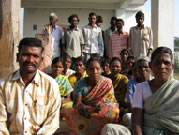 |
|
| Week 2. | |
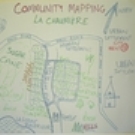 |
|
| Week 3. | Survey of Solution-Oriented Adaptation Techniques |
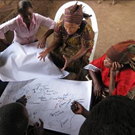 |
|
| Week 4. | |
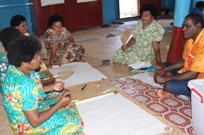 |
|
| Week 5. | |
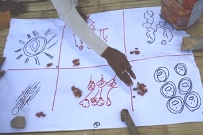 |
Buffering against extended dry spells, the late arrival of rain and/or an early end to the rainy season, and from strong tropical rains.
|
| Week 6. | |
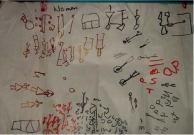 |
|
| Week 7. | Workshop Planning |
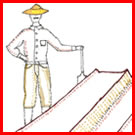 |
|
| Week 8. | Capacity Building |
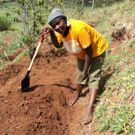 |
|
The Course also Provides the Following Resources
Documents on course topics by contemporary experts.
Books, posters and manuals available online for download.
Internet development links organized by sector.
There are no books to buy—all course materials can be linked to, or downloaded from the course site.
Visit the companion course: OL 332: Water Conservation and Management.
So what’s next? Click on the Assignment One Discussion and get started in development!
Tim Magee
